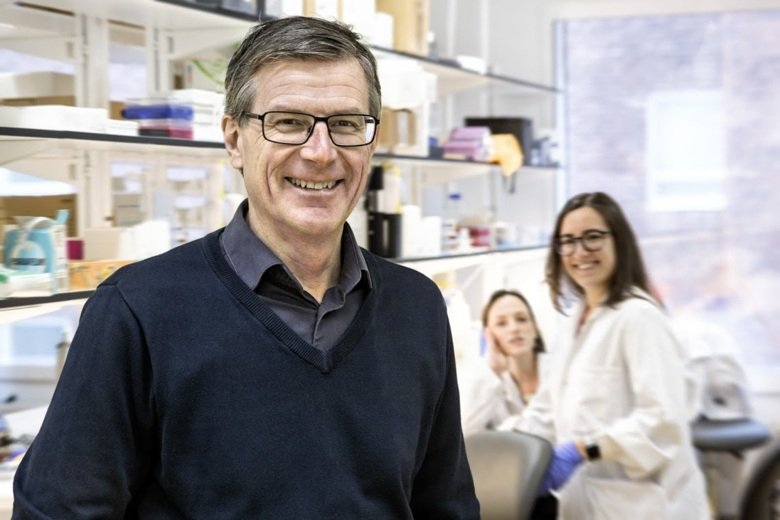Guardian of the genome
Aprea Therapeutics AB is working on the development of a new p53-based treatment for cancer. Klas Wiman is one of the company’s founders, and he draws a clear distinction between the roles of researcher and entrepreneur.

A key element of the body’s defences against cancer - the protein p53 - was discovered at the end of the 1970s. p53 was later dubbed “the guardian of the genome” because amongst other characteristics it can respond when damage to cells’ DNA occurs. The absence of functioning p53 greatly increases the risk of cancer. Mutations in the p53 gene are found in around half of all tumors and is the most common genetic change in cancer.
“The discovery of p53 mutations in cancer attracted a lot of attention at the end of the 1980s, and it was at that point that I started my research in the p53 field. After a few years we decided to look for a molecule that could get mutant p53 working again and kill cancer cells,” explains Klas Wiman, professor at Karolinska Institutet.
“It’s important to ensure that our research benefits cancer patients, and commercialization is the way to reach patients.“
Many were sceptical
At the beginning of the 2000s, Wiman and his colleagues Galina Selivanova and Vladimir Bykov had identified a molecule with interesting characteristics. They realized early on that their molecule could perhaps be developed into a new drug and therefore approached KI Innovations for help.
However, the pharmaceutical industry’s interest in p53 as a target for novel anti-cancer drugs was modest. The findings of Wiman’s group were not in line with prevailing trends in cancer drug development, which at the time tended to focus on inhibiting various cancer-driving kinases.
“We wanted to recreate functionality in a mutated and misfolded protein. Many were sceptical, but we thought that it could work.” Together with KI Innovations, the team established Aprea AB in 2003 with the aim of developing new cancer treatment. Karolinska Development was among the first to invest in the company, with others such as Industrifonden following suit later.
Initial clinical trials started in 2009, and showed promising results. Wiman and his colleagues chose to publish their results at a relatively early stage.
“We’re researchers first of all, and we need to publish our results in order to move on. But I also believe that solid publications can really help the company,” he says.
Research should benefit patients
Aprea participated as a partner in an EU-funded project that Wiman co-ordinated involving more than 20 research groups and companies.
“I think it was good for Aprea to participate in this initiative and interact with leading p53 researchers in Europe,” he says. “It’s important to ensure that our research benefits cancer patients, and commercialization is the way to reach patients. At the same time, my roles as an objective researcher and entrepreneur must be kept apart,” he adds.
“Even if you hope that everything’s going to work, you need to continue to be objective and critically review your results.”
Today, Aprea Therapeutics is conducting several clinical trials, including one in ovarian cancer and one in a certain type of leukemia.
This is very exciting, Wiman says, who has been able to continue doing what enjoys the most: academic research. “We’re now running a new project where we’re attempting to reactivate another type of p53 mutants in a different way. We’re back at a very early phase of drug development and haven’t even reached animal testing. But I love it, and it’s where I can contribute most. This strategy may also work on the same type of mutations in other important genes that prevent cancer.”
Quick facts
The history behind the p53 discovery
p53 was discovered at the end of the 1970s by several researchers. One of them, Sir David Lane, is currently at Karolinska Institutet where he heads a research group in the field. He is also Chief Scientist at Singapore’s Agency for Science, Technology and Research.
